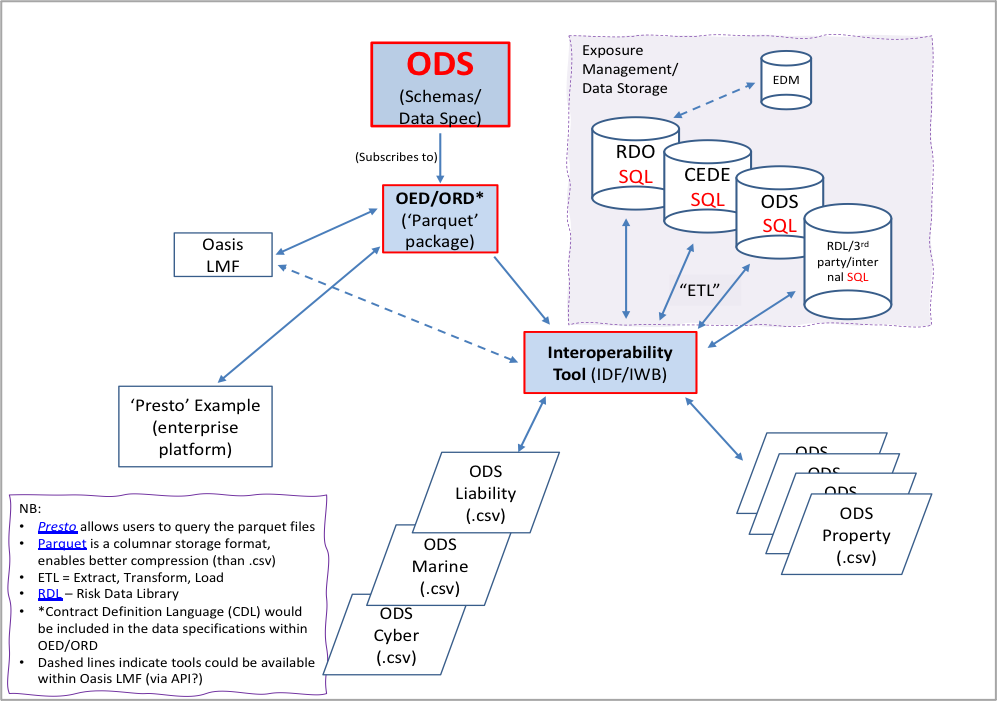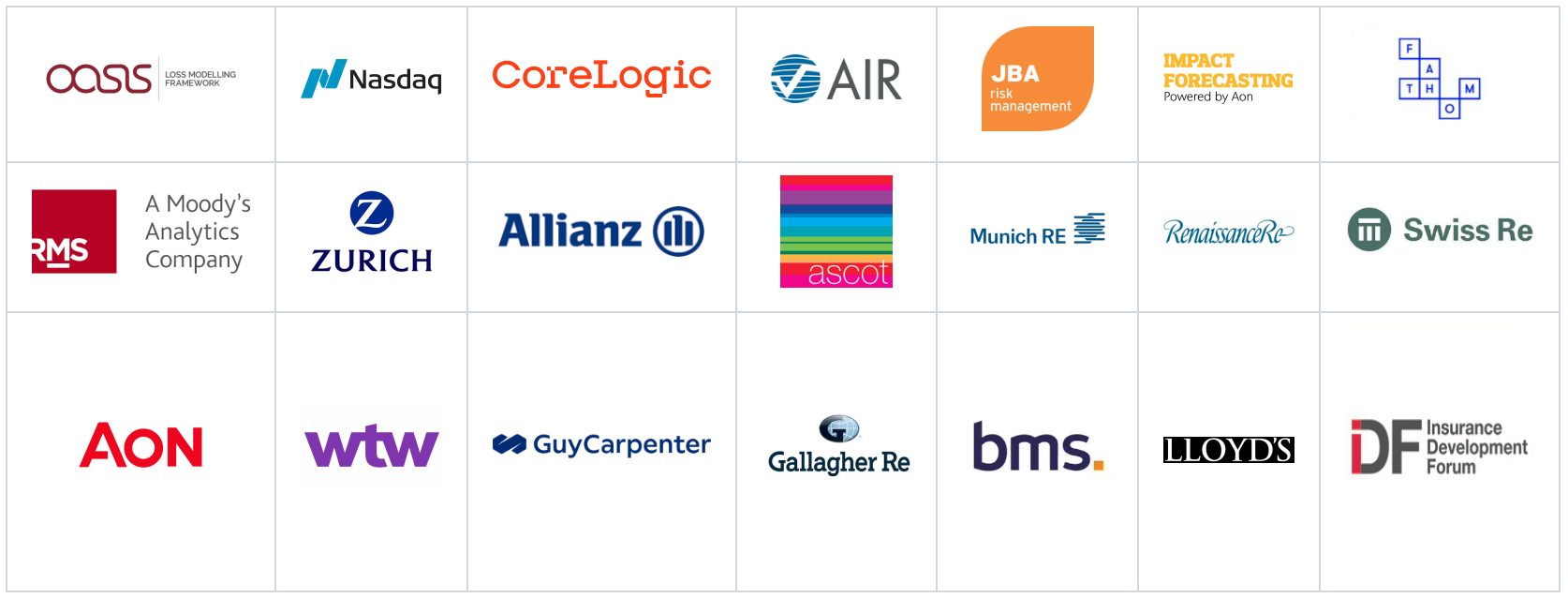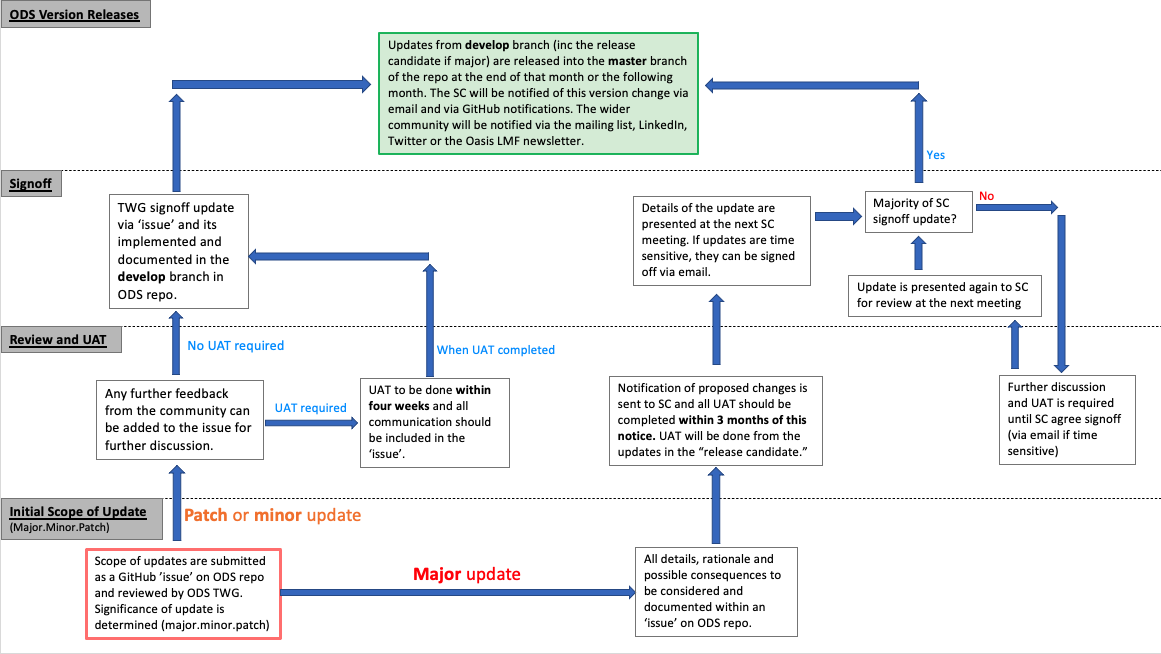ODS - Open Data Standards¶
On this page:¶
Introduction¶
Open Data Standards (ODS) are a set of specifications and guidelines that define how data should be structured, formatted, and shared in an open and interoperable manner. These standards enable data to be easily exchanged, accessed, and understood by different systems, organizations, and users. Its aim is to be the standard used for exposure data, result outputs and contract(s) terminology for the (re)Insurance industry and other interested parties in catastrophe modelling and exposure management across all classes of business.
ODS is key to ensuring continued data consistency, transparency, collaboration, and scalability for the cat modelling community. This one consistent data format enables a significant reduction in required efforts and cost when using multiple models from various providers and transferring data around the market.
The ODS is primarily comprised of two parts:
Open Exposure Data (OED) refers to the standard format for exposure data going into the models and Open Results Data (ORD) refers to the standardised model outputs. They are both designed to assist with overcoming interoperability problems current in the catastrophe modelling community.
Note
It’s important to know that ODS is NOT an Oasis standardand and is not owned by a single entity for commercial benefit. ODS is an initiative developed by the market for the market.
ODS structure with Oasis¶
Oasis utilises ODS and continues to drive and support its development in collaboration with the community. Oasis LMF are continuously expanding the ODS functionality they support on their platform, especially in their financial module (FM).
The diagram below highlights the proposed, long-term structure of ODS and all the key components. Interoperability is vital to ensure efficient interaction across multiple databases, systems and external exposure management and data storage facilities.

Detailed documentation on which financial fields are supported in the Oasis kernel can be found here.
How ODS is Governed¶
ODS is curated by Oasis LMF and governed by the Open Data Standards Steering Committee (SC). This committee meets 3-4 times a year and is comprised of industry experts representing (re)insurers, brokers, service providers, and catastrophe model vendors. ODS is a market initiative which relies on wide collaboration from the market to develop and progress. The SC will evolve over time and include Subject Matter Experts to assist with areas requiring specific domain experience, including data validation and support for enhancing and automating the interoperability of these standards.
ODS Committee Members:¶

ODS Governance¶
The governance and process around releases and updates of ODS can be found here but a schematic of the overview is shown below:

A Technical Working Group (TWG) maintains and updates the assets that define the data standards. Although the TWG has a few core members from Oasis LMF and Nasdaq, it’s dynamic and involves users from the community who have proposed the updates or changes.
Suggestions for updates and feedback should be submitted via a GitHub issue on the respective repos where the community can review and comment to ensure all communications remain transparent. OED issues can be submitted here:
https://github.com/OasisLMF/ODS_OpenExposureData/issues
Links for further information¶
Further information and community views of ODS can be found on the ODS website:
https://oasislmf.org/open-data-standards.
The GitHub repository for ODS can be found here.